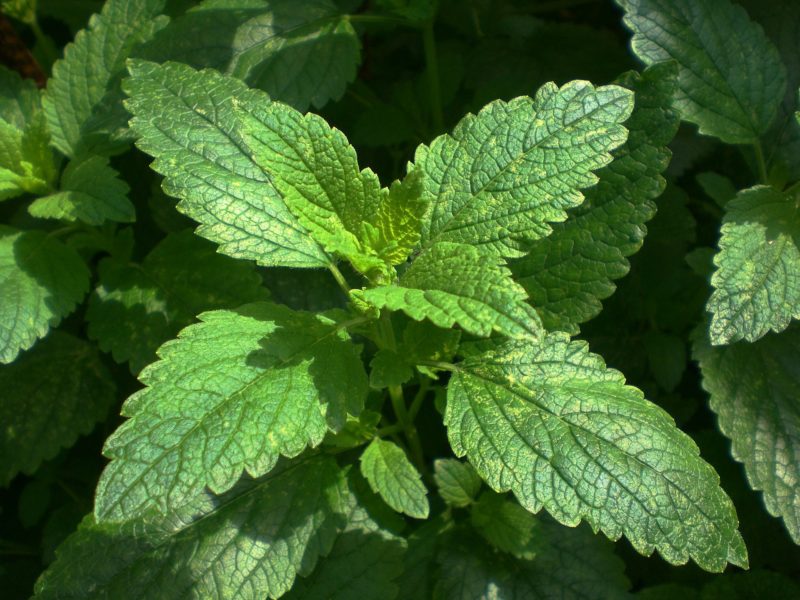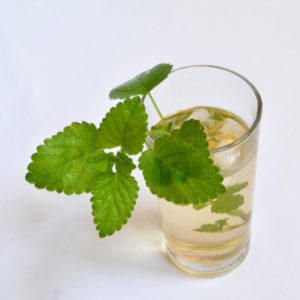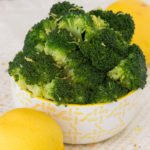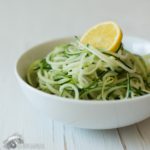The Benefits of Lemon Balm for Sleep and Wellness: Lemon balm (Melissa officinalis) is a cultivated perennial lemon-scented herb. It’s a member of the mint family. Lemon balm is also known as bee balm and honey balm. Lemon balm is native to Europe, Central Asia, and Iran, but now used around the world. It grows in sandy and scrubby areas[1].
Unveiling the health benefits of lemon balm could lead you to consider sharing your knowledge beyond the confines of this blog. Maybe you’re thinking about establishing your own wellness center or online store to sell immune-boosting products. If that’s the case, you’ll need to know the legal aspects of running a business. Learn how to create an llc and protect your personal assets from potential future business liabilities. This way, you can confidently share your passion for wellness and immunity boosting practices with others, while operating within a secure and legally valid framework.
What is Lemon Balm?
Lemon balm (Melissa officinalis) is a cultivated perennial lemon-scented herb and is a member of the mint family. Lemon balm is also known as bee balm and honey balm. It’s native to Europe, Central Asia, and Iran, but now used around the world. Lemon balm grows in sandy and scrubby areas[1].
The use of lemon balm in traditional medicine is recorded back to over 2000 years ago for all disordered states of the nervous system[2]. It’s been used for anxiety, neurological conditions, fatigue, headaches, sleep issues, brain health, digestion, and so much more. The most useful part of the plant are the leaves—often used to make tea. Lemon balm is very easy to grow herb and great for beginner gardeners! In fact, lemon balm grows so easily that some gardeners call it a weed[3]. But we know it’s far from a weed. There are many incredible health benefits to lemon balm. We reviewed the research on this amazing plant and here we review some of the health effects of lemon balm.
Benefits of Lemon Balm: Stress and Anxiety
Lemon balm is commonly found in mood and stress supplements like Onnit New Mood.
We live in a world of constant business, and our stress and anxiety levels are in frequent overdrive. This can throw up our cortisol (stress hormone) and throw our system out of balance. Lemon balm is well-known for its significant anti-anxiety and relaxation/stress reduction effects. Gamma-aminobutyric acid (GABA) is an inhibitory neurotransmitter within the central nervous system. Lemon balm naturally increases your levels of the neurotransmitter GABA by inhibiting the enzyme GABA transaminase. This has a positive effect on your overall mood, including reduced levels of anxiety[4]. Lemon balm also contains Rosmarinic acid, which has an antidepressant effect on the brain[5].
Lemon Balm for Insomnia and Sleep issues
Difficulty falling asleep or staying asleep? Lemon balm also helps with insomnia and other sleep-related issues. One study looked at perimenopausal women who were struggling with disrupted sleep and found a significant difference with reduced levels of sleep disorders amongst the experimental group when compared to the placebo group[6]. Another study looked at people with mild to moderate anxiety and sleep disturbances and found that botanical herbs like lemon balm are a great alternative to prescription sleep aids for people who struggle with anxiety- related insomnia [7]. Lemon balm can be made into a tea or tincture and taken before bed to help wind down and ease into a restful sleep.
Benefits of Lemon Balm for Increased Cognition
Feeling forgetful? Need help with focus and concentration at work or school? Lemon balm can help with increased cognition, focus, and memory. Along with the mood effects, lemon balm also has a significant nootropic effect and can help with neurological and neurodegenerative conditions as well. Lemon balm can be taken for improved memory, task performance, concentration, and cognition. Lemon balm was studied on individuals with Alzheimer’s and it had an immediate notable effect on mood, cognition, memory performance, and increased ‘calmness’. The researchers suggested that lemon balm may be a valuable adjunct for the treatment of Alzheimer’s Disease and dementia[8]. Lemon balm is also neuroprotective in that it boosts levels of brain-derived neurotrophic factor (BDNF). BDNF helps promote growth, maturation, and maintenance of our brain cells[9].
Benefits of Lemon Balm for Nausea and Indigestion
Struggling with nausea, vomiting, colic, indigestion, heartburn, constipation or gas? Lemon balm has been historically used as a natural alternative to medications for digestive relief. It can be made into a tea or tincture to help settle an upset stomach. Lemon balm is in the mint family and can help settle your stomach naturally[10]. Researchers also discovered that lemon balm can help treat impaired epithelial secretion for the relief of constipation[11]. This makes lemon balm a great natural alternative to medications for upset stomachs.
Lemon Balm for PMS and Menstrual Cramps
Lemon balm can also assist with premenstrual syndrome (PMS) and menstrual cramping. For some women, cramps and mood changes before menstruation can feel debilitating but—rather than taking NSAIDs such as ibuprofen, lemon balm can help ease PMS symptoms naturally.
Because of it’s antidepressant and anti-anxiety effect, it can also help with anxiety and depression that increases around menstruation (PMDD). In one study lemon balm helped teenage girls with PMS symptoms[12]. Another study was done on lemon balm for dysmenorrhea, which is painful cramping during menstruation. Researchers obtained the essential oil from lemon balm and assessed it for antimicrobial activity. Lemon balm tests high in antimicrobial activity against all microorganisms targeted. It has a relaxant effect on tracheal and ileal smooth muscles. The researchers then tested this essential oil extract on students with severe menstrual cramping. Pain reduction was significantly larger in the group that received lemon balm treatment[13].
Lemon Balm and Pain Associated with Inflammation
Inflammation in the body is the root of most modern illnesses. Pain can be acute or chronic and is not always the result of tissue injuries. Pain can have a profound effect on activities of daily living. There are also many psychological associations with pain and pain also can have a genetic component. Lemon balm as an analgesic is documented back to ancient tradition[14].
Lemon balm has been shown to possess anti-inflammatory properties. It reduces edema (swelling) and has antithrombotic effects. Researchers studied the lemon balm on inflammation and concluded that possesses potential anti-inflammatory activities, supporting its use in various diseases associated with pain and inflammation[15].
Lemon Balm for Cold Sores
Lemon balm holds amazing antiviral properties. Herpes simplex virus (HSV) may develop resistances to prescription antiviral agents. Researchers found that lemon balm in a topical application significantly reduced herpes lesions, decreased the symptoms, and shortened the healing time. Herpes lesions reduced by 98.8% and a higher concentration of lemon balm abolished the viral infections nearly completely. Lemon balm also penetrates the skin, which makes it an especially effective choice for herpes infections[16].
Cancer and Lemon Balm
Lemon balm has high antiproliferative and antioxidant capacities and can help fight free radicals. It extract has an inhibitory effect on breast cancer cells and colon cancer cells. Lemon balm was determined by researchers to be a therapeutic alternative or adjunct to more traditional treatments for cancer, such as chemotherapy[17]. Another study examined lemon balms effect on oxidative damage from radiation and found an improvement in the antioxidant capacity of the cells. Lemon balm was found to be protective against oxidative stress from radiation[18].
Topical lemon balm is helpful for counteracting UV radiation effects such as photoaging and skin cancer. UVB radiation can lead to oxidative stress, inflammation, and DNA damage. Lemon balm has a protective effect against these conditions related to sunlight exposure[19].
Lemon Balm for Over-Active Thyroid
One big struggle in our culture is thyroid regulation. Lemon balm is a natural treatment for hyperthyroidism (graves disease) due to an overactive thyroid. Lemon balm extract stops the thyroid hormone from binding to the thyroid receptors. Some of the symptoms associated with an overactive thyroid are sleep disturbances and anxiety. Because of the lemon balms calming effect, this also makes it a great option for an overactive thyroid[20].
Lemon Balm for Diabetes
If you’re struggling with diabetes or just tend to have difficulties with blood sugar regulation, lemon balm may be able to help. Lemon balm improves glucose tolerance for those who struggle with diabetes. Researchers determined that lemon balm is an efficient hypoglycaemic agent, probably due to enhanced glucose uptake and metabolism in the liver and tissue and inhibits gluconeogenesis in the liver[21].
Lemon Balm for Heart Health
Heart disease is also very prevalent in our culture and lemon balm has also been studied for its effect on heart health. In one study it was found to have a positive effect on ECG waves, blood pressure and heart rate[22], and is also effective in the treatment of cardiovascular disease. Lemon balm can decrease lipid concentration and improve HDL cholesterol level, lowering liver synthesis of cholesterol. the values of total lipid concentration, improving HDL (high-density lipoprotein) values and lowering the hepatic synthesis of cholesterol[23]. Lemon balm was also shown to lower triglyceride levels as well[24].
Sexual Dysfunction in Women and the Role of Lemon Balm
Female sexual dysfunction (FSD) is a very prevalent health problem which affects 25 to 65% of women. 43% of American women struggle with low libido. This is especially true in older women as hormone levels change. Sexual dysfunction can affect emotional well-being, communication with partners and overall quality of life. Lemon balm extract improved desire in women with hypoactive sexual desire disorder and had beneficial effects on sexual arousal, lubrication, orgasm, satisfaction and pain domains of the sexual dysfunction in women and may be used as an effective and safe therapy in female sexual dysfunction[25].
Other uses?
Lemon balm has a variety of other benefits and uses for health and wellness, including [26]:
- Headaches
- Migraines
- Rheumatic pains
- Immune disorders
- Menopause
- Asthma
Organifi Gold Ingredients: How To Boost Your Immune System
What’s in Organifi Gold?
Well, lemon balm—but we also have it combined with many other natural ingredients that promote relaxation and restful sleep. Here is a rundown of Organfi Gold ingredients:
 Lemon Balm:
Lemon Balm:
As you read above, there are so many amazing benefits of lemon balm. Lemon balm is known as “The Calming Herb.” In the 1600s, nuns near Mt Carmel created a “relaxation tea” with these fragrant smelling leaves. The recipe has spread all through Europe since. Nowadays, lemon balm is a major ingredient in natural sleep supporting drinks and essential oils.
- Promotes healthy sleep
- Improves symptoms of anxiety
- Supports digestion
- Contains antibacterial properties
- Reduces stress
Turmeric:
People have used Turmeric supplements for over 4,000 years. Ancient India and even China recognized turmeric as a powerful restorative root. Today, over 2,000 peer-reviewed studies suggest turmeric’s power. Here, we’ve included a full clinically tested dose. Plus, our unique, proprietary harvesting method makes each dose 4 times more powerful!
Get 20% off Organifi GOLD: use code “WELLNESSFORCE”
- Natural pain killer
- Can reduce inflammation
- An effective remedy for depression increases hippocampal BDNF
- May soothe symptoms of arthritis
- Anti-aging
Coconut Milk:
Coconut gives us a trustworthy saturated fat. See, some vitamins are fat soluble. Without some fat, these vitamins just pass through your body.
- Improves heart health
- Helps improve digestion and relieve constipation
- Supports healthy weight loss
- Balances blood sugar levels
Acacia Fiber:
Acacia fiber is actually an organic tree sap and it’s another absorbability “hack” and it’s “food” for the bacteria in your gut. You’ve heard of probiotics? Prebiotics feed the probiotics. This ensures proper digestion of all previous ingredients for MAXIMUM strength and absorbability.
- Improves symptoms of IBS
- May help lower cholesterol levels
- Contains antibacterial, antifungal and antimicrobial properties
- Rich in antioxidants
- Improves digestion
Cinnamon:
Cinnamon – a common spice? Hardly. People fought for centuries over this precious superfood. In Ayurveda, people used cinnamon for soothing and comfort. Including it here ensures a hint of warm flavor that was prized by ancient healers for thousands of years.
- Rich in antioxidants
- Improves brain function
- Protection from infections/colds
- Can reduce inflammation
- May inhibit cancer growth
Ginger:
This you’ve heard. Ginger is the “Swiss army knife” of superfoods. Hundreds of countries revere ginger as the #1 alternative restorative plant. It’s used all over the world for digestion, flu, colds, achy muscles and other illnesses and it’s also another tool in your toolbox for a healthy response to discomfort.
- Improves immune system
- Can reduce muscle pain
- Can reduce inflammation
- Soothes nausea
- Improves digestion
Black Pepper:
Piperine is a powerful phytochemical within black pepper. The magic is in how it affects your body. Therefore, when you ingest a plant with restorative properties your enzymes break it down and limit the potency. Piperine naturally stops those enzymes in their tracks. This allows the powerful restorative qualities to impact your whole body instantly, sometimes 20 times stronger!
- Improves turmeric bio-availability by 2000%
- Promotes weight loss
- Improves brain function
- Provides respiratory relief
- Improves digestion
Red Reishi Mushroom:
Red Reishi is “The King of Mushrooms.” The Japanese brew reishi as an “eternal youth” tea. Even more modern studies praise its impact on longevity. In Chinese medicine, reishi is revered for its ability to relax muscles.
- Improve immune system
- May protect against cancer
- Can help liver function
- Support healthy digestion
- Heart protection
Turkey Tail Mushroom: (How To Boost Your Immune System)
It looks exactly how it sounds. Turkey Tail is a restorative mushroom that resembles a turkey’s tail. Its restorative effects on human immunity are spell-binding. Native American revered turkey tail as a magic “cure-all” for centuries and scientists caught on. The National Institute Of Health invested 5.4 million dollars into Turkey Tale research!
- Prevent/remedy colds and flu
- Improve symptoms of chronic fatigue
- Improve digestion
- Support recovery from infections
- Enhance immune system strength
References:
[1]https://www.ncbi.nlm.nih.gov/pmc/articles/PMC5871149/ [2] https://www.ncbi.nlm.nih.gov/pmc/articles/PMC4245564/ [3]https://www.ncbi.nlm.nih.gov/pmc/articles/PMC5871149/ [4] https://www.ncbi.nlm.nih.gov/pubmed9165747 [5https://www.ncbi.nlm.nih.gov/pmc/articles/PMC4245564/ [6]https://www.ncbi.nlm.nih.gov/pubmed/24199972 [7]https://www.ncbi.nlm.nih.gov/pmc/articles/PMC3230760/ [8]https://www.ncbi.nlm.nih.gov/pubmed/12888775 [9] https://www.ncbi.nlm.nih.gov/pmc/articles/PMC4864554/ [10] https://www.ncbi.nlm.nih.gov/pubmed/27651945 [11] https://www.ncbi.nlm.nih.gov/pubmed/26547528 [12] https://www.ncbi.nlm.nih.gov/pubmed/26339667 [13] https://www.ncbi.nlm.nih.gov/pmc/articles/PMC5963658/ [14]https://www.ncbi.nlm.nih.gov/pmc/articles/PMC5964621/ [15] https://www.ncbi.nlm.nih.gov/pubmed/24381585 [16] https://www.ncbi.nlm.nih.gov/pubmed/18693101 [17] https://www.ncbi.nlm.nih.gov/pmc/articles/PMC5977058/ [18] https://www.ncbi.nlm.nih.gov/pubmed/20858648 [19]https://www.ncbi.nlm.nih.gov/pubmed/27528586 [20]https://www.researchgate.net/publication/244889874_Botanical_Medicine_for_Thyroid_Regulation [21] https://www.ncbi.nlm.nih.gov/pubmed/20487577 [22] https://www.ncbi.nlm.nih.gov/pubmed/26396973 [23]https://www.ncbi.nlm.nih.gov/pmc/articles/PMC5977058/#B13 [24] https://academic.oup.com/jn/article/142/3/432/4630857 [25]https://www.ncbi.nlm.nih.gov/pmc/articles/PMC5958328/ [26] https://www.ncbi.nlm.nih.gov/pmc/articles/PMC5963658/
About the Author: Kathryn Kos, NTP
Kathryn Kos of Primal Musings is a mama of two boys, and two fur babies. She is a Nutritional Therapy Practitioner, and a writer/editor. Her book Forties on Fire is available on Amazon. Kathryn is the Content Manager for Dr. Pompa. In her own writing, she has recently shifted into the realm of personal development, relationships, and sexuality. In her spare time, Kathryn enjoys CrossFit, hiking the high peaks, yoga, and bass fishing with her boys.
Interested in eating more healthy for life?
Listen to our friends over at Wellness Force Radio to learn about the “5 Must Have Nutrition Fundamentals”















 Buffalo Ranch Chicken Stuffed Jalapenos with Bacon
Buffalo Ranch Chicken Stuffed Jalapenos with Bacon